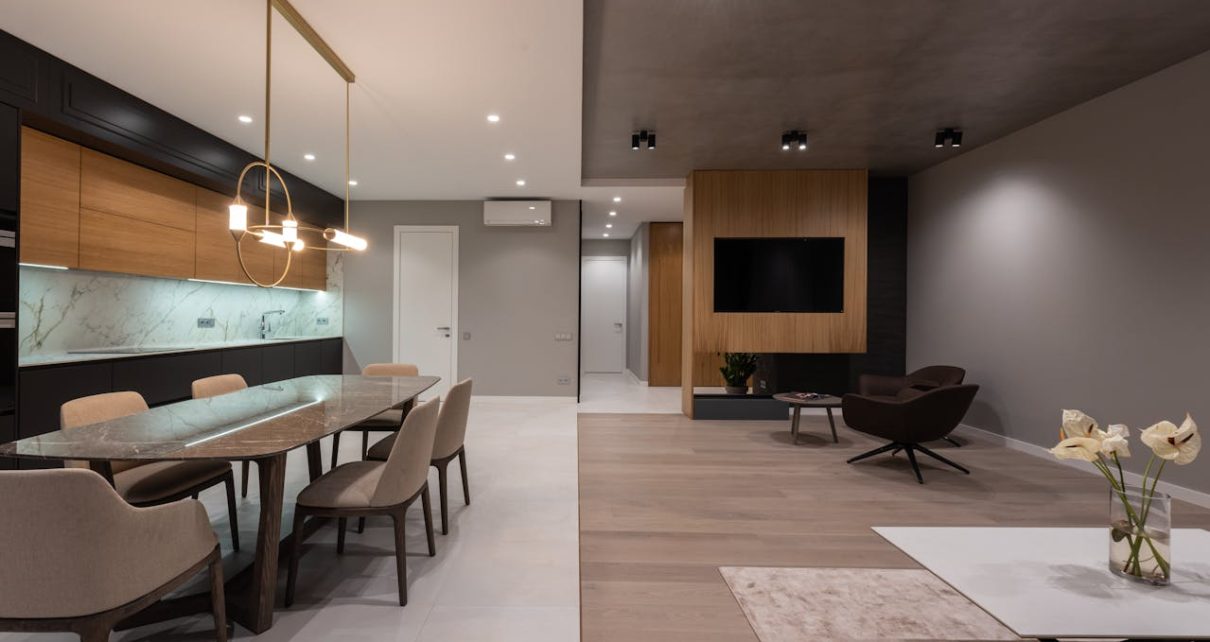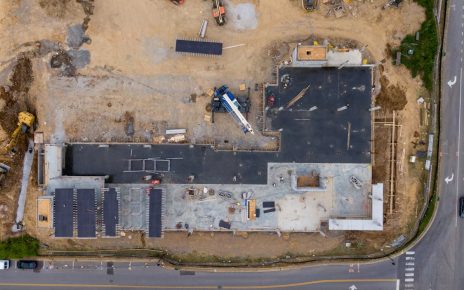Epoxy floors look stunning and are highly durable. They can withstand heavy traffic and are resistant to heat and environmental damage. They cost more upfront than carpets, but they pay for themselves in lower maintenance and replacement costs.
Water-based and solvent-based epoxy contain low levels of VOCs (volatile organic compounds), so they are environmentally friendly. Pure solid epoxy is more expensive, but it lasts longer.
1. Self-Assembly Kits
Epoxy floors are tough and durable, offering a long lifespan and beautiful decorative looks. They are also easy to clean, and resistant to spills and germs. If you’re looking to upgrade your concrete floor surface in your garage, basement, workshop, or commercial kitchen, these samples found in an Epoxy flooring listing in Fort Myers are good affordable and practical options.
You’ve likely seen DIY epoxy kits in your local home improvement store. These kits include the epoxy resin and polymer hardeners, and they can be applied to your concrete floor by you or a professional contractor. However, you will need to have significant experience with this type of project to apply the epoxy correctly and achieve the desired results. You will also need special tools and equipment to prepare the floor properly, which can add up to the overall cost of the project.
Water-based epoxy is the least expensive at $30 to $50 per gallon, but it offers less durability and damage resistance than other types of epoxy. It also releases volatile organic compounds (VOCs) during the application process, which makes it illegal in some areas. Solvent-based epoxy is more costly at an average of $45 per gallon, but it can withstand extreme temperatures and high-moisture environments. It also does not release VOCs, making it a better choice for indoor applications.
A professional can help you decide which type of epoxy is best for your space, and he or she will be able to install it properly to ensure that the product comes with a warranty. You can expect the installation process to take one to three days, depending on the amount of space and how much prep work is involved.
When you invest in an epoxy floor, you can choose from a variety of designs and color options to create your ideal look. For example, you can get a metallic epoxy penny floor or opt for a classic checkerboard pattern. You can even have an integral cove base installed, which is a smooth transition between the wall and floor so that dirt or debris doesn’t collect in the corners. This feature is often used in food-service facilities because it prevents bacteria and other contaminants from accumulating in the corner spaces where dust can hide.
2. DIY Kits
Epoxy is an attractive and durable floor coating that is perfect for high-traffic areas like garages. However, it is not an inexpensive option. Whether you want to add an epoxy floor to your home, commercial space or industrial facility, it can cost anywhere from $80 to $320 per square foot. It is important to consider your budget before installing an epoxy floor, and there are several ways you can save money on this flooring option.
There are a variety of DIY kits available for those who are willing to tackle the application themselves. These kits typically contain water-based epoxy resins, which are the most affordable and easy to apply. However, homeowners will get better results and a more durable finish by hiring a professional contractor.
Water-based epoxy costs around $40 per gallon and can be laid over most floors, even when damp. It is low in volatile organic compounds (VOCs) and dries faster than other epoxy types, but it isn’t as durable or resistant to damage as solid or solventless epoxy.
Solvent-based epoxy costs around $50 per gallon and is more durable than water-based epoxy. However, it is highly flammable during the application process and isn’t suitable for use in a garage or workshop where oil or other petroleum-based chemicals may spill.
Solid epoxy is the most expensive and durable of all epoxy options, costing around $150 per gallon. It doesn’t release VOCs and dries quickly, but it isn’t suited for floors with high moisture content.
Flake epoxy is an attractive and functional flooring option, with multi-colored flake materials inserted into the surface as it’s applied. This makes it aesthetically appealing, and it is also non-slip, which reduces the risk of accidents in high traffic spaces.
Vinyl flake epoxy is a great choice for those who want to express their creative vision through their floor. You can choose from a wide range of colors to create a unique look for any space.
Metallic epoxy is another option that allows you to combine different hues to create a vibrant, eye-catching finish. This type of epoxy is perfect for car showrooms, sports venues and clinics, as well as residential spaces.

3. Concrete Resurfacing
Concrete resurfacing involves coating the existing concrete surface with a thick layer of material that can be stained and finished in a variety of ways to upgrade the look and add durability. This is an alternative to tearing out the concrete and starting fresh, which can be expensive and inconvenient. It’s also more budget-friendly than a complete floor replacement, and it can hide cracks, stains and other damage that would otherwise be visible.
Unlike DIY kits that contain water-based epoxy, professionally applied flooring products are available in a range of color and design options to suit any space. For example, polyaspartic basement floors feature decorative colored flakes broadcast over the top before the epoxy is applied that obscure dust and add visual interest to your space. You can also get a custom logo poured into the flooring to promote your business or an ode to your favorite sports team.
Resurfacing concrete is an environmentally friendly option that doesn’t use chemicals or pollute the environment like carpet or tile can. It’s also durable and long-lasting, lasting between 10 and 20 years or more. It’s also easy to clean and resists stains, dirt and other contaminants. Keeping the surface looking good with resurfacing is easy, too—just sweep and mop regularly.
If you are considering resurfacing your concrete, be sure to hire a professional flooring contractor. This will ensure that the job is done correctly, which will prevent future problems and save you money in the long run. In addition, the contractor will provide you with a warranty in case something goes wrong.
Be sure to ask for referrals and review the contractors online before hiring one to resurface your concrete. A trusted contractor will have a good track record and provide you with a comprehensive estimate that includes cleaning, preparation and labor. They should be licensed, insured and bonded. If they are unable or unwilling to provide you with these documents, don’t hire them. They may not be reputable and could potentially cause further damage to your concrete and/or property.
4. Integral Cove Base
The type of flooring system and the amount of wall coverage will greatly impact cost estimates. For example, a basic epoxy in a storage room is much different than an industrial floor designed to accommodate forklift traffic. A more complex aggregate and a higher number of coats can also drive up the price.
In addition, many commercial and industrial flooring applications require a sanitary transition between the floor and the walls. This ensures that any liquids splashed on the walls are guided away and not trapped in a crevice. This is especially important in areas where sanitation is a major requirement, like food and beverage facilities and commercial kitchens.
This is why integral cove base is often a preferred option for these types of floors. It is installed at a specific height around the perimeter of the room and then coated over with an epoxy flooring system. This provides a seamless transition that is easy to clean and will not harbor bacteria or dirt.
Integral cove is typically hand troweled by a qualified flooring contractor. It is a time consuming process, but it is important for the integrity of the overall flooring system. A poor cove installation can create a rough surface that traps debris, encourages mold growth and can harbor bacteria and germs.
A quality contractor will ensure that the entire project is executed properly from start to finish. This includes the proper subfloor preparation, ensuring the appropriate coating is applied and that it meets all of the facility’s requirements. An experienced contractor will have the expertise, product knowledge, vendor relationships and skilled labor to complete a professional installation of a quality flooring system.
Another important factor is the quality of the materials used. A good quality epoxy floor coating will last longer and stand up to the rigors of everyday use. This will significantly reduce the need for expensive replacements and repairs, which can quickly add up. This is why it is important to choose a contractor with the proper training and certifications to ensure the right material is selected for your floor and that it will be installed correctly.





